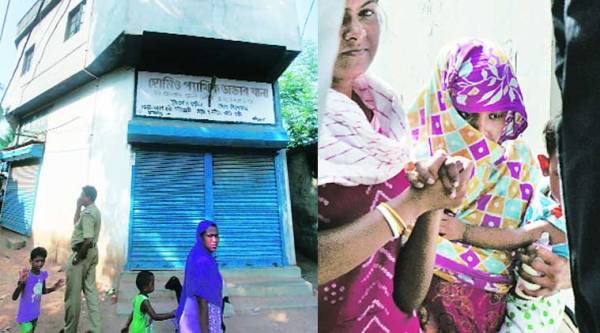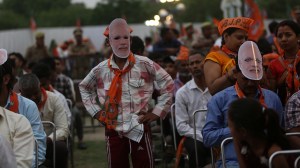- India
- International
JuM-B: An old link with bombmaker ‘Tunda’, a new terror threat to India
Trinamool Congress Rajya Sabha MP Ahamed Hassan Imran, whose name has appeared in media reports, has denied terror links. Who are the JuM-B? Do they have an India connection?
 The house in Burdwan where the October 2 blast took place (Right). Rumi Bibi, whose husband Shakil Ahmed died in the blast, has told interrogators that bombs were meant for strikes in Bangladesh (Left).
The house in Burdwan where the October 2 blast took place (Right). Rumi Bibi, whose husband Shakil Ahmed died in the blast, has told interrogators that bombs were meant for strikes in Bangladesh (Left).
Shakil Ahmed and Swapan Mondal (alias Sobhan Mondal), the two men killed in the October 2 blast in Burdwan, were allegedly bombmakers with links to the Jamaat-ul-Mujahideen Bangladesh (JuM-B), a terrorist organisation that is said to have received money from the Saradha chit fund scam.
Trinamool Congress Rajya Sabha MP Ahamed Hassan Imran, whose name has appeared in media reports, has denied terror links. Who are the JuM-B? Do they have an India connection?
Who are the Jamaat-ul Mujahideen Bangladesh?
In August 2005, 500 bombs went off in synchronised attacks in all but one of Bangladesh’s 64 districts, announcing the might of a jihadi group committed to overthrowing democracy in that country, and replacing it with an Islamic state. The JuM-B also carried out a suicide bombing, targeting the bar association in Gazipur. Hundreds of JuM-B cadres were rounded up in a sweeping police crackdown, and each one of its original leaders, including its founder, Sheikh Abdul Rehman, was sentenced to death and executed. But the organisation has proved resilient, with plots being repeatedly foiled from 2008 on. In February 2014, the organisation staged a spectacular ambush on a prison van, snatching one of its top commanders sentenced to death, Rakib Hasan Russell, from custody.
What is the connection between JuM-B and the Saradha scandal?
Bangladesh’s intelligence services, and media reports in both that country and in India, have claimed Trinamool Congress Rajya Sabha MP Ahamed Hassan Imran routed some funds raised from the Saradha chit fund scam to the JuM-B. No evidence has surfaced so far to support these claims, though Hassan did run a newspaper funded by the Saradha group. In an interview to The Indian Express, Hassan said he joined SIMI in 1977, which was then not a banned organisation. He denied he had terror links, and alleged he had been targeted because he was a Muslim intellectual. The Enforcement Directorate has questioned Hassan twice, but has not so far moved to arrest him.
Where is the connection with the Burdwan blast?

There isn’t any so far. Rumi Bibi, whose husband Shamim Shakil Ahmed died in the blast with Swapan Mondal, has told investigators that the explosives were meant for strikes in Bangladesh. She is believed to have said that in the last three months, four consignments of bombs had been sent to Bangladesh through two couriers named Kausar and Rasiq.
Does the JuM-B have an India link?
Yes. In 1996, when the to-be JuM-B founder, Sheikh Abdul Rehman, and Asadullah Ghalib, of the Ahl-e-Hadith Andolon Bangladesh, decided to found a jihadi group, they turned to an Indian for help. This was Abdul Karim ‘Tunda’, the alleged Lashkar-e-Toiba bombmaker who had fled India in the 1990s, and who was finally arrested last August. The planned collaboration with Tunda did not work out, though, apparently because Tunda wanted the focus of the attacks to be on India, not Bangladesh. The JuM-B later sent cadres to train with insurgent groups in the Northeast and, subsequently supplied arms and explosives to terrorists across India. Following the crackdown in 2009, Bangladeshi investigators believe, many JuM-B cadres hid out in India — among them, the organisation’s top information technology expert, Mohammad Sayem.
Does the JuM-B have links to transnational jihadis?
Sheikh Abdul Rehman, who was born in 1959, studied in the madrassa of his father, an Ahl-e-Hadith Andolon Bangladesh cleric, and then left to join the mujahideen fighting the Soviets in Afghanistan. He later ran a successful business renting apartments to pilgrims visiting Mecca and Medina, and developed contacts with the Muslim Brotherhood there and in Kuwait. Rehman himself has been executed, but it is likely the JuM-B continues to have access to funds from Islamists in West Asia.
Is the JuM-B a threat to India?
Even though the JuM-B has never attacked India, the answer is yes. It has a long history of cooperation with the Lashkar-e-Toiba, which has in the past used Dhaka as a base for terrorist operations targeting India. Second, the JuM-B has attacked pro-democracy politicians in Bangladesh who have been strongly supportive of India’s counter-terrorism concerns in that country. Should Islamists hostile to India come to power in Dhaka, the danger will increase — especially because other jihadi groups, like al-Qaeda in the Indian Subcontinent and the Harkat-ul-Mujahideen Bangladesh, too are showing signs of activity.
Apr 25: Latest News
- 01
- 02
- 03
- 04
- 05







































